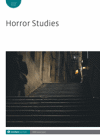
Horror Studies
Scope & Guideline
Exploring the Depths of Fear and Imagination
Introduction
Aims and Scopes
- Interdisciplinary Analysis of Horror:
The journal encourages contributions that incorporate perspectives from various fields, including literature, film studies, cultural studies, gender studies, and sociology, to explore horror's complex narratives and themes. - Cultural and Historical Contexts:
Horror Studies emphasizes the importance of situating horror within its cultural and historical contexts, examining how societal issues, historical events, and cultural shifts inform horror narratives and their interpretations. - Critical Approaches to Horror Media:
The journal focuses on critical analyses of horror across different media, including film, literature, television, and digital platforms, investigating how these forms shape and reflect horror's evolution and societal implications. - Thematic Exploration of Identity and Society:
Horror Studies often addresses themes of identity, including gender, sexuality, race, and class, exploring how horror narratives challenge or reinforce societal norms and highlight marginalized voices. - Innovative Methodologies:
The journal is open to innovative methodologies, including psychoanalytic, phenomenological, and postcolonial approaches, that deepen the understanding of horror's psychological, emotional, and social effects.
Trending and Emerging
- Decolonization and Horror:
There is a growing trend towards exploring horror's potential for decolonization, focusing on how horror narratives can challenge colonial legacies and provide new perspectives on identity and representation. - Gender and Sexuality in Horror:
Recent works increasingly examine the intersections of gender and sexuality within horror, particularly how these identities are represented and subverted in contemporary horror narratives. - Digital and Technological Horror:
The influence of digital media and technology on horror is a significant emerging theme, with analyses focusing on how video games, online horror communities, and digital storytelling reshape the experience and interpretation of horror. - Environmental and Ecological Themes:
Emerging studies are addressing the relationship between horror and environmental issues, exploring how horror narratives reflect anxieties about ecological collapse, climate change, and the Anthropocene. - Psychosocial Dimensions of Horror:
There is an increasing focus on the psychological and emotional dimensions of horror, particularly how horror reflects collective societal fears and anxieties in contemporary contexts.
Declining or Waning
- Traditional Gothic Tropes:
There has been a noticeable decline in papers focusing solely on traditional Gothic elements, such as haunted houses and classic monsters, as the field increasingly embraces contemporary interpretations and socio-political themes. - Sole Focus on Horror as Entertainment:
The journal's earlier emphasis on horror purely as a form of entertainment has diminished, giving way to more critical and analytical approaches that interrogate horror's cultural significance and ethical implications. - Static Gender Roles in Horror:
Discussions around static or traditional gender roles within horror narratives are becoming less frequent, as the field moves towards more nuanced examinations of gender fluidity and intersectionality in horror. - Analysis of Horror in Isolation:
There is a decline in the analysis of horror outside of broader cultural contexts; recent publications tend to integrate horror with contemporary issues like politics, environmental concerns, and social movements, rather than treating it as a standalone genre.
Similar Journals

FRENCH REVIEW
Engaging with Contemporary Topics in French StudiesFRENCH REVIEW, published by Johns Hopkins University Press, is a premier journal in the fields of Cultural Studies, Education, Linguistics and Language, and Literature and Literary Theory. With its ISSN 0016-111X and E-ISSN 2329-7131, this journal serves as a vital resource for scholars and practitioners seeking to engage with contemporary topics through rigorous academic discourse. The journal has made notable strides in its impact factor, ranking in the third quartile for Cultural Studies and Linguistics, as well as the second quartile for Literature. While it currently does not offer open access, FRENCH REVIEW remains committed to fostering critical analysis and interdisciplinary approaches, effectively contributing to the advancement of research and understanding in its respective fields. With its converged years spanning from 2002 to 2024, this journal is an essential platform for exchanging ideas and enhancing knowledge in the vibrant landscape of French studies and beyond.
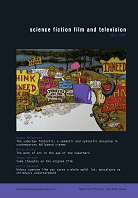
Science Fiction Film and Television
Exploring the Boundaries of Imagination in Film and TVScience Fiction Film and Television, published by LIVERPOOL UNIV PRESS, is a leading academic journal that explores the rich intersection of science fiction with cinematic and television narratives. With an ISSN of 1754-3770 and E-ISSN 1754-3789, this journal provides a platform for critically engaging with both historical and contemporary works within the genre, offering insights into its cultural significance, aesthetic innovations, and societal impacts. As part of the communication and visual arts fields, it is recognized in the Scopus ranking, achieving an impressive percentile of 87th in Visual Arts and Performing Arts, and maintaining a respectable rank within communication studies. Since its inception in 2018, it aims to foster dialogues among scholars, professionals, and students, making substantial contributions to the understanding of science fiction as a vital cultural phenomenon. With access options that cater to a broad audience, Science Fiction Film and Television is essential reading for those interested in exploring the innovative potentials and narratives of science fiction across media.
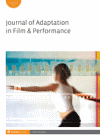
Journal of Adaptation in Film & Performance
Advancing Critical Discourse in Adaptation TheoryThe Journal of Adaptation in Film & Performance, published by INTELLECT LTD, serves as a pivotal platform for scholars and practitioners in the interdisciplinary realms of film studies and performance theory. With its ISSN 1753-6421 and E-ISSN 1753-643X, this esteemed journal aims to explore the dynamic processes through which adaptations transform narratives across various media, emphasizing the evolving dialogue between film and live performance. This journal not only addresses theoretical frameworks but also considers practical methodologies, establishing invaluable connections between adaptation studies and contemporary artistic practices. By fostering critical discourse and showcasing innovative research, the journal contributes significantly to the academic landscape, making it an essential resource for researchers, professionals, and students keen on understanding the nuances of adaptation within cultural contexts. Although it currently does not offer an open access model, its rigorous peer-reviewed approach ensures that published content meets high scholarly standards, further enhancing its impact in the field.
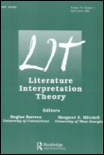
LIT-Literature Interpretation Theory
Exploring the Depths of Literary Theory.LIT-Literature Interpretation Theory is a premier academic journal that delves into the intricate relationships between literature and various interpretative theories, published by Routledge Journals, Taylor & Francis Ltd. With an ISSN of 1043-6928 and E-ISSN 1545-5866, this journal has established a notable reputation within the field, evidenced by its ranking in the 71st percentile among peers, and its placement in Q3 of the Literature and Literary Theory category for 2023. Since its inception in 1989 and continuing through 2024, LIT has aimed to provide a platform for the examination of literary texts through diverse theoretical lenses, catering not only to scholars and researchers but also to students and practitioners interested in literary discourse. Although it does not offer open access, the journal continues to be a vital resource for those seeking to enhance their understanding of literary theory within the arts and humanities. With robust insights and critical analyses, LIT contributes significantly to ongoing conversations in literature and promotes innovative interpretations that challenge conventional perspectives.
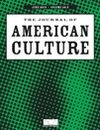
JOURNAL OF AMERICAN CULTURE
Charting the Landscape of American Cultural DiscourseJOURNAL OF AMERICAN CULTURE is a distinguished academic journal published by Wiley, focusing on the rich tapestry of American culture through various lenses including history, literature, visual arts, and cultural studies. Established in 1996 and continuing its scholarly contributions through 2024, the journal serves as a vital platform for researchers, professionals, and students to disseminate their work and engage with critical discussions surrounding American cultural narratives. With an impressive impact reflected in its 2023 quartile rankings — Q2 in Literature and Literary Theory and Q3 in Cultural Studies, History, and Visual Arts and Performing Arts — the journal enhances scholarly dialogue across diverse disciplines. Although it does not offer Open Access options, its rigorous peer-review process ensures high-quality research dissemination. It is a go-to resource for those aiming to explore the evolving dynamics of American culture within a global context.
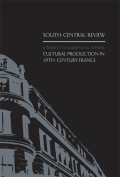
South Central Review
Illuminating Innovations in Cultural DiscourseSouth Central Review, a distinguished academic journal published by Johns Hopkins University Press, serves as a vital platform for scholarly discourse in the fields of cultural studies, literature and literary theory, philosophy, and the visual and performing arts. With an ISSN of 0743-6831 and an E-ISSN of 1549-3377, this journal is dedicated to highlighting innovative research and critical analyses that explore the complexities of Southern culture and its broader implications. Although it operates without an open access option, the journal is recognized for its rigorous peer-review process and contributions to contemporary academic dialogue, holding Q3 and Q4 rankings across several disciplines as of 2023. The convergence of ideas and perspectives from diverse academic backgrounds positions the South Central Review as an essential resource for researchers, professionals, and students seeking to deepen their understanding of the cultural narratives shaping our world today.

Eixo e a Roda-Revista de Literatura Brasileira
Illuminating the Rich Tapestry of Brazilian CultureEixo e a Roda-Revista de Literatura Brasileira is a pioneering academic journal dedicated to the exploration and dissemination of Brazilian literature, published by the Federal University of Minas Gerais, Faculty of Letters. Since its inception in 1982, this Open Access journal has provided a vital platform for researchers, educators, and enthusiasts to share innovative ideas and critical analyses related to Brazilian literary studies. With its ISSN 0102-4809 and E-ISSN 2358-9787, the journal attracts a diverse readership and invites submissions that contribute to the richness of Brazilian cultural discourse. Located in Belo Horizonte, Brazil, the journal plays a critical role in advancing scholarly dialogue and promoting accessibility in literature research, fostering an inclusive environment for academic exchange.

Concentric-Literary and Cultural Studies
Fostering Innovative Research at the Heart of CultureConcentric-Literary and Cultural Studies is a distinguished journal dedicated to advancing scholarship in the fields of literature and cultural studies. Published by the NATIONAL TAIWAN NORMAL UNIVERSITY, COLLEGE OF INTERNATIONAL STUDIES & SOCIAL SCIENCES, this journal offers a platform for researchers and academics to explore diverse topics that intersect literature and culture. With its ISSN 1729-6897 and E-ISSN 1729-8792, Concentric has been making significant contributions since its inception in 2012. Although presently listed in the Q4 quartile for both cultural studies and literature, the journal is committed to enhancing interdisciplinary dialogues and fostering innovative research approaches that push the boundaries of traditional scholarship. Residing in Taiwan, Concentric not only caters to local scholars but also reaches an international audience, providing access to critical perspectives and recent advancements in these pivotal fields. Aspiring to an impactful future, this journal continues to promote scholarly excellence and aims to ascend within academic rankings while engaging a robust community of researchers, professionals, and students.
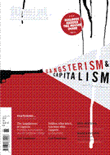
Film International
Advancing Interdisciplinary Insights in Film Studies.Film International is a prominent journal dedicated to the exploration of film and its cultural, social, and artistic significance. Published by INTELLECT LTD, this journal serves as a platform for interdisciplinary studies in the field of film criticism, theory, and scholarship, contributing valuable insights from both established and emerging researchers. With an ISSN of 1651-6826 and an E-ISSN of 2040-3801, the journal is an essential resource for those engaged in the realms of communication, cultural studies, and visual arts, though it is currently classified in the lower quartiles of these fields (Q4). Noteworthy for its critical perspectives and diverse content, Film International enhances the dialogue surrounding cinematic practices and their impact on society. Researchers, professionals, and students can explore its rich assemblage of articles and reviews that reflect the evolving landscape of film studies, making it a significant addition to the academic community focused on the art of film.
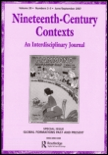
Nineteenth-Century Contexts-An Interdisciplinary Journal
Navigating the Complexities of 19th Century ThoughtNineteenth-Century Contexts: An Interdisciplinary Journal is a pivotal academic publication that serves as a vital resource for scholars and students engaged in the exploration of the complex cultural, literary, and social dimensions of the nineteenth century. Published by Routledge Journals, Taylor & Francis Ltd, this journal holds a position within the Q2 and Q3 quartiles in the fields of Literature and Literary Theory and Cultural Studies respectively, illustrating its significance and relevance in contemporary research. Since its inception in 1987, it has fostered interdisciplinary dialogue and examination of the era's rich contexts, featuring articles that weave together historical, literary, and cultural analyses. Although the journal does not currently offer an open access model, its rigorous peer-review process guarantees scholarly integrity and quality. Housed in the United Kingdom, it caters to a global audience, thereby attracting diverse perspectives and insights, making it an essential publication for anyone looking to deepen their understanding of the complexities of the nineteenth century.